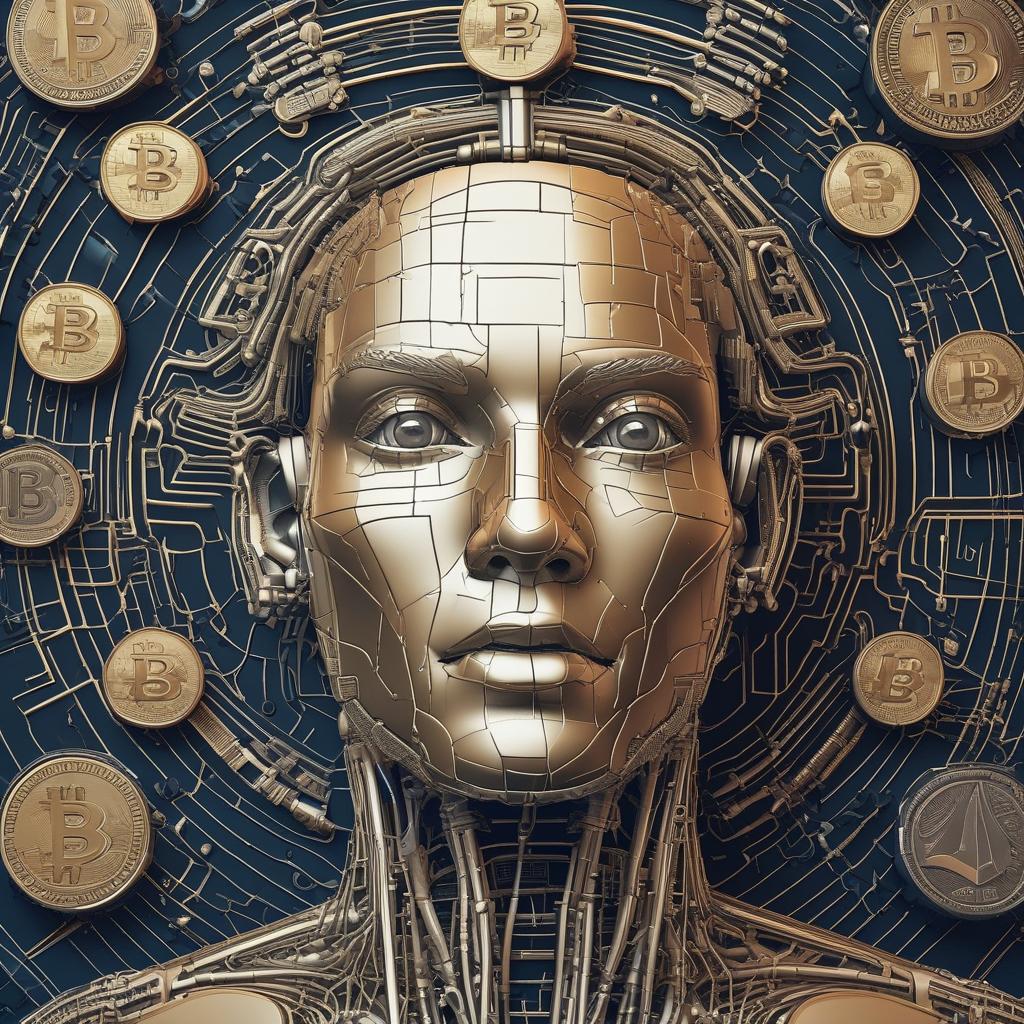How AI is Revolutionizing Cryptocurrency Trading in 2025
How AI is Revolutionizing Cryptocurrency Trading in 2025
Cryptocurrency trading has come a long way since the introduction of Bitcoin in 2009. Over the past decade, digital currencies have evolved from niche investments to mainstream financial assets, with millions of traders and investors participating globally. As we step into 2025, one of the most transformative forces driving this industry forward is artificial intelligence (AI). AI’s impact on cryptocurrency trading is vast, touching everything from market analysis and trading strategies to risk management and customer support. This article explores how AI is revolutionizing cryptocurrency trading in 2025, shaping the future of the industry and creating new opportunities for traders and investors.
1. AI-Powered Market Analysis and Predictions
Cryptocurrency markets are highly volatile, with prices often swinging dramatically in short timeframes. Traditionally, traders have relied on technical and fundamental analysis to make decisions, but these methods have limitations when faced with the speed and complexity of the digital asset markets.
In 2025, AI is helping traders make more informed decisions by providing advanced market analysis tools. AI algorithms can analyze vast amounts of historical data, identify patterns, and generate real-time insights into market trends. Machine learning (ML) models, which are a subset of AI, can recognize complex patterns in price movements, social media sentiment, and news events that might be too subtle for human traders to spot.
One of the key advancements in this area is the use of Natural Language Processing (NLP) algorithms, which analyze news articles, tweets, and online forums in real-time. This allows AI to gauge market sentiment, identify emerging trends, and predict how events (such as regulatory changes or major hack incidents) could impact the price of cryptocurrencies. By providing actionable insights, AI-powered market analysis tools help traders make quicker and more accurate decisions.
2. Automated Trading Bots and Algorithms
Automated trading bots and AI-powered algorithms are transforming the way traders execute their strategies. In 2025, these bots are more sophisticated than ever, capable of executing high-frequency trades at lightning speed, managing large portfolios, and adapting to rapidly changing market conditions.
Unlike human traders, AI trading bots can process vast amounts of data in real-time, executing trades based on pre-programmed rules or machine learning models. These bots use algorithms to analyze price movements, volume, order book data, and other key indicators to predict short-term price fluctuations. Once a trading opportunity is identified, the bot can automatically execute a trade without any human intervention.
AI-powered bots also have the advantage of eliminating human emotions from trading. Fear, greed, and uncertainty are common psychological barriers that can cloud judgment and lead to poor decision-making. AI, on the other hand, makes decisions based on data, ensuring a more disciplined and consistent approach to trading. Furthermore, AI can monitor the market 24/7, ensuring that traders never miss an opportunity or make decisions based on outdated information.
3. Risk Management and Fraud Detection
Risk management is a critical aspect of cryptocurrency trading, especially given the volatility and unpredictable nature of digital assets. AI is playing a significant role in helping traders and exchanges manage risk more effectively in 2025.
AI-powered risk management tools can analyze the potential risk of individual trades by factoring in various elements such as market conditions, price volatility, liquidity, and news events. By providing traders with real-time risk assessments, AI helps them decide whether to enter or exit positions and set appropriate stop-loss levels to limit potential losses.
AI is also making strides in improving fraud detection and security in the cryptocurrency market. Cryptocurrency exchanges, being frequent targets for hackers, are implementing AI-based security systems to monitor transactions for signs of suspicious activity. Machine learning models can analyze transaction patterns and detect anomalies in real-time, helping to prevent fraud and unauthorized access to user accounts.
For example, AI can detect “wash trading” (where traders manipulate prices by buying and selling the same asset to create the illusion of trading volume) or unusual trading patterns that may indicate market manipulation. By enhancing security and preventing fraudulent activity, AI is helping to make cryptocurrency trading safer and more reliable.
4. AI in Decentralized Finance (DeFi)
Decentralized Finance (DeFi) has emerged as one of the most exciting developments in the cryptocurrency space. DeFi applications use blockchain technology to recreate traditional financial services such as lending, borrowing, and trading without the need for centralized intermediaries like banks. AI is playing a crucial role in the growth and evolution of DeFi platforms in 2025.
In the DeFi space, AI is being used to optimize liquidity management, enhance yield farming strategies, and automate smart contracts. For example, AI can help predict the best times to lend or borrow assets based on interest rates, liquidity conditions, and market sentiment. This allows DeFi participants to maximize their returns and minimize risk.
Furthermore, AI is also being used to automate the execution of smart contracts in DeFi applications. By integrating machine learning algorithms with blockchain technology, DeFi platforms can automatically adjust parameters such as interest rates and collateral requirements based on market conditions. This helps ensure the stability of DeFi protocols, even during periods of high volatility.
5. Personalized Trading Strategies for Retail Investors
Traditionally, professional traders and institutional investors had access to sophisticated tools and resources that gave them an edge in the cryptocurrency markets. However, AI is helping to level the playing field for retail investors, providing them with personalized trading strategies based on their risk tolerance, investment goals, and market preferences.
AI-powered platforms are offering tailored investment advice, using machine learning models to assess the individual needs of retail traders. These platforms can help users identify profitable opportunities, select appropriate assets, and create diversified portfolios. Additionally, AI-driven robo-advisors are being developed to offer automatic rebalancing of portfolios, ensuring that they remain aligned with the investor’s objectives over time.
This democratization of AI tools enables retail investors to trade more effectively and with greater confidence, even without a deep understanding of the underlying technical aspects of cryptocurrency markets.
6. AI and the Future of Crypto Regulation
As cryptocurrency markets continue to grow, regulators are increasingly looking for ways to ensure the security, stability, and fairness of the market. AI is playing a role in shaping the future of cryptocurrency regulation by helping authorities monitor and analyze market activities.
AI algorithms can track transactions across different exchanges and blockchain networks to identify suspicious or illegal activities, such as money laundering, terrorist financing, or market manipulation. By automating compliance processes, AI can help regulatory bodies enforce existing laws and create new frameworks that adapt to the rapidly evolving cryptocurrency ecosystem.
Moreover, AI can aid in the development of “smart regulations” that adjust based on market conditions. For instance, AI could help detect market manipulation or irregular price movements and trigger automatic regulatory responses, such as temporarily halting trading or investigating suspicious activities.
7. The Ethical and Social Implications of AI in Crypto Trading
While AI offers numerous benefits in cryptocurrency trading, it also raises ethical and social concerns. The increasing reliance on AI could potentially lead to job displacement in certain sectors, as automated systems replace human traders and analysts. Furthermore, the concentration of AI-powered trading tools in the hands of a few large players could lead to market manipulation and exacerbate wealth inequality.
Moreover, the use of AI in cryptocurrency trading raises questions about transparency and accountability. AI algorithms are often seen as “black boxes,” meaning their decision-making processes are not easily understood by humans. This lack of transparency could lead to a loss of trust in AI-driven trading systems, especially if they lead to unexpected market outcomes.
To address these concerns, industry stakeholders, including regulators, developers, and traders, will need to work together to ensure that AI is used responsibly and ethically in cryptocurrency markets.




Post Comment